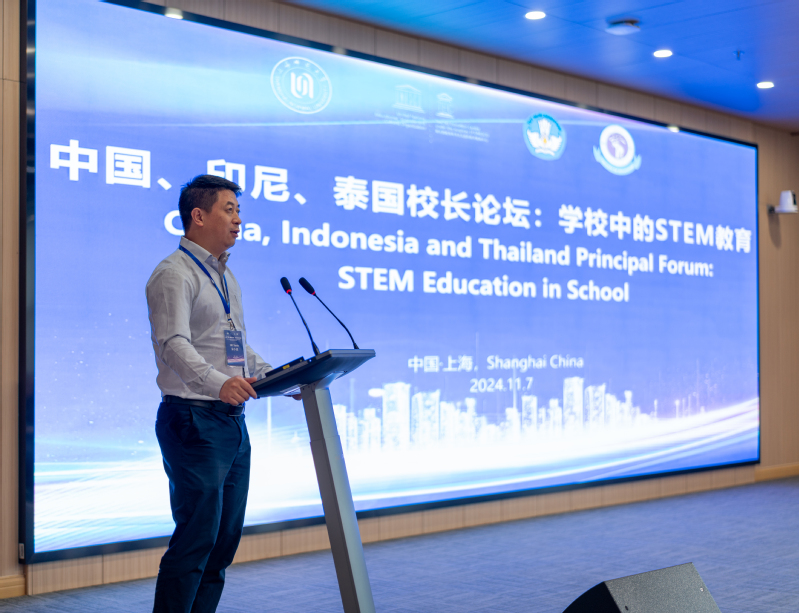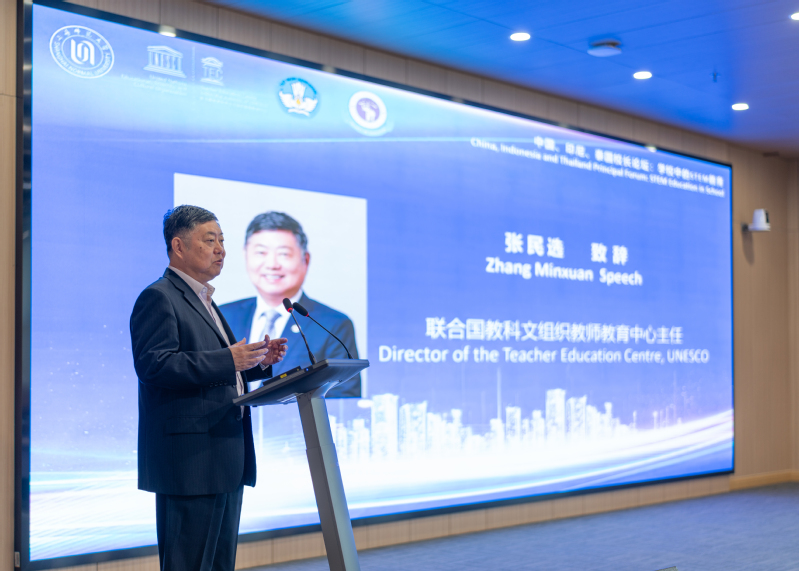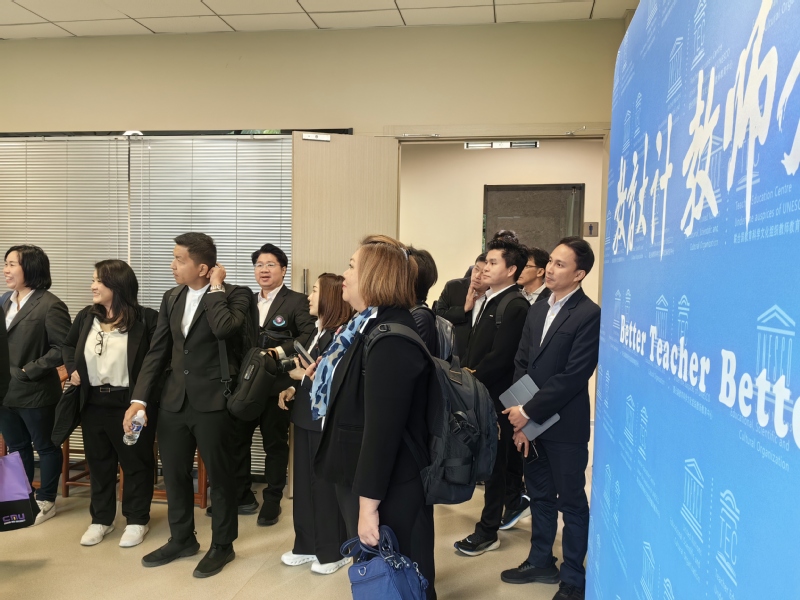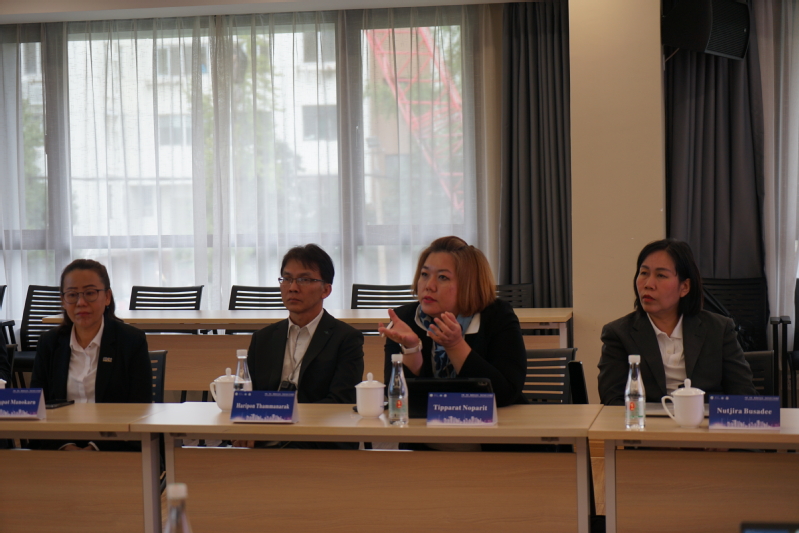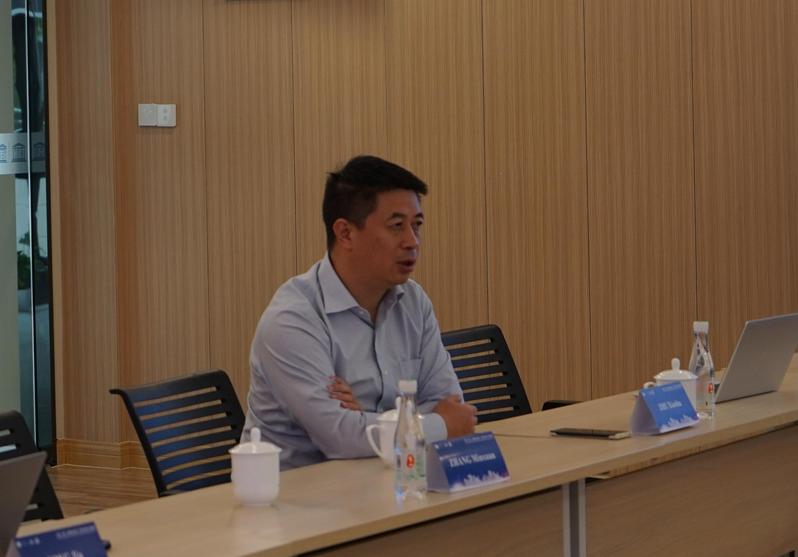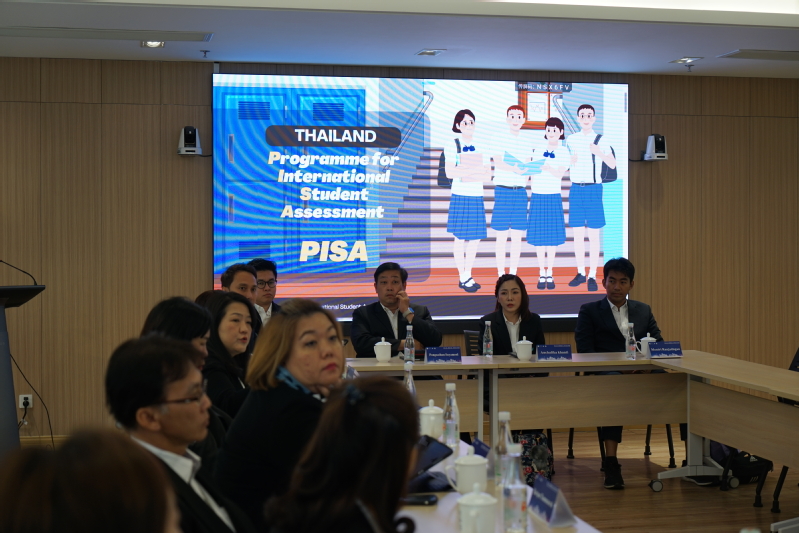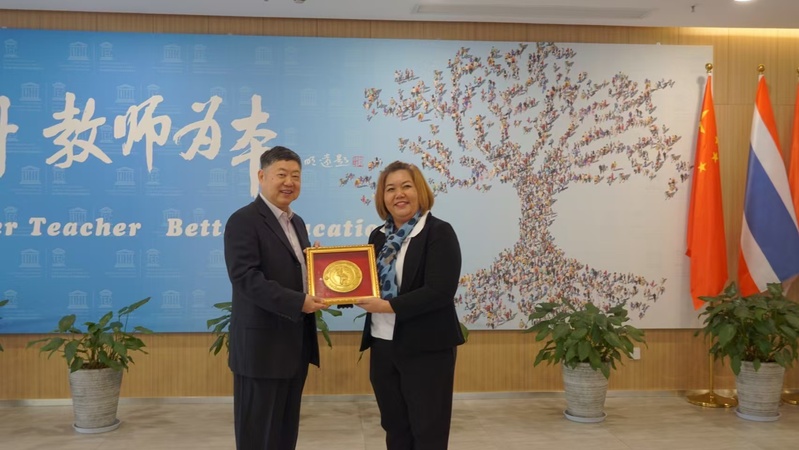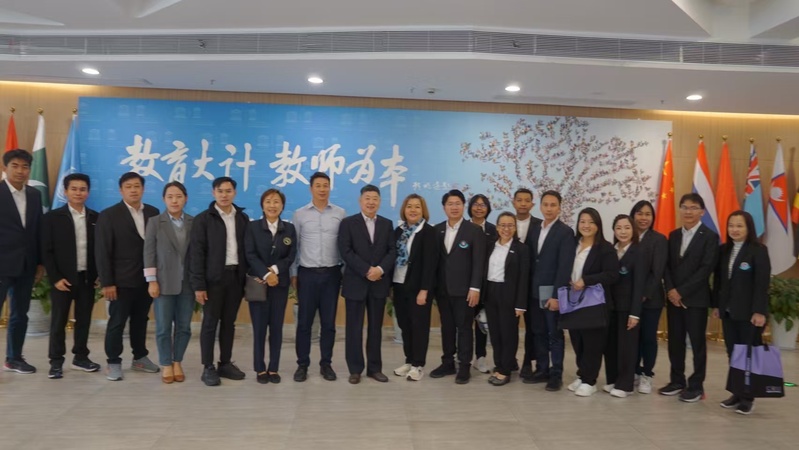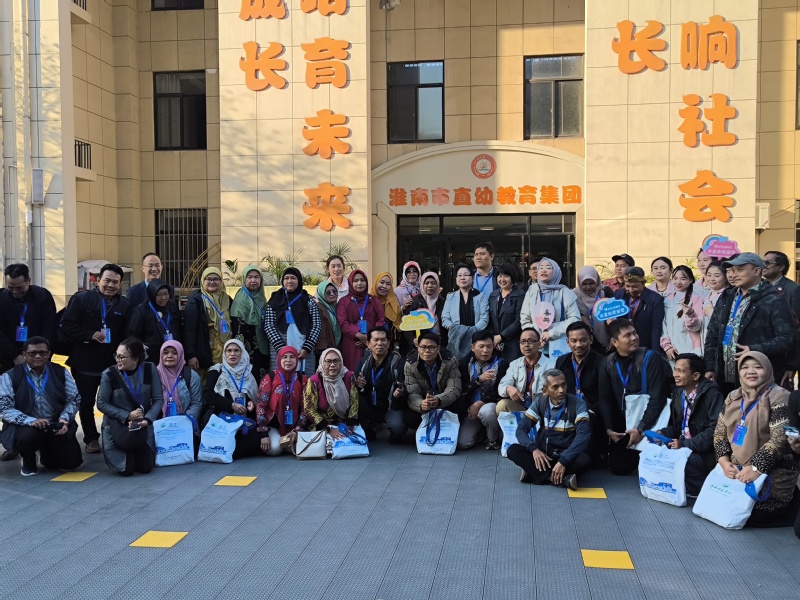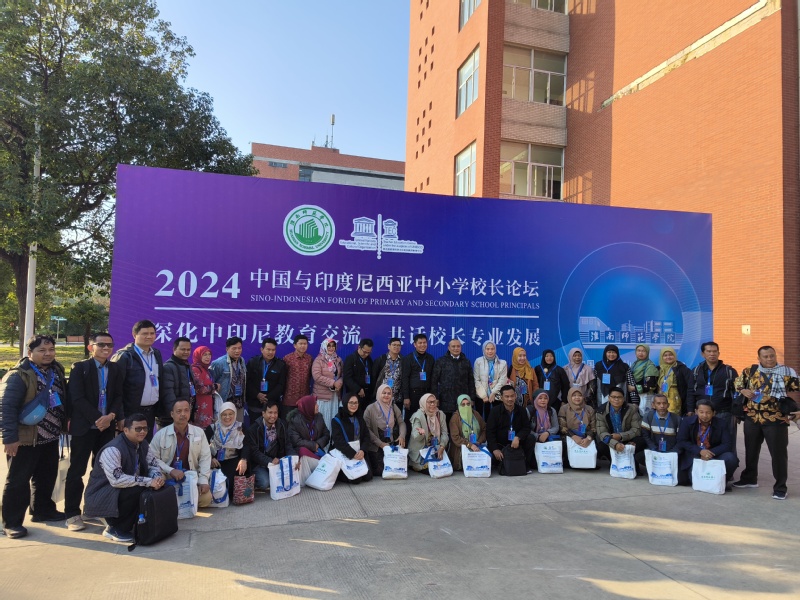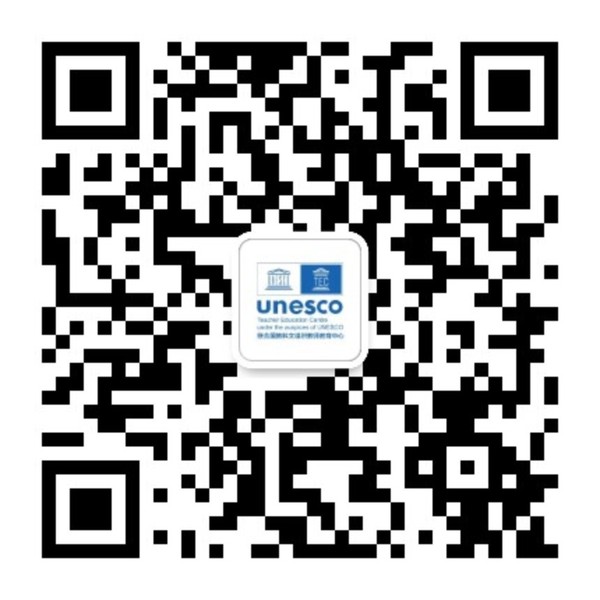On the afternoon of November 7, Shanghai Normal University, the UNESCO Teacher Education Centre (hereinafter referred to as the Centre), Indonesia's Ministry of Education, Culture, Research, and Technology, and the Faculty of Education at Chiang Mai University, Thailand, jointly hosted a principals' forum themed STEM Education in Schools. Nearly 100 outstanding principals, supervisors, educational researchers, and officials from Shanghai (China), Indonesia, and Thailand attended the forum to discuss ways to promote and deepen STEM education in schools. The forum also featured simultaneous online live streaming, which was watched by over 1,400 viewers.
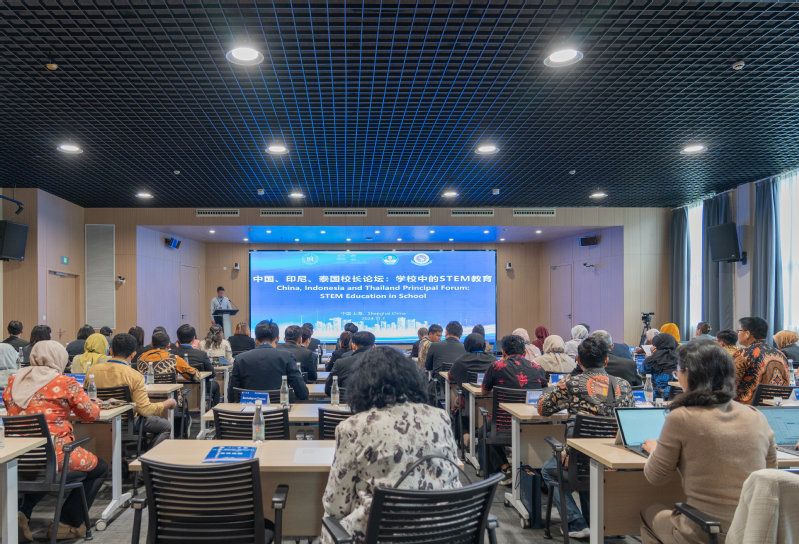
The forum was chaired by Zhu Xiaohu, Project Director of the Centre. Zhang Minxuan, Director of the Centre, delivered an opening speech first. He extended a warm welcome to the guests attending this tripartite forum, noting that educational innovation and cross-border experience exchange are important ways to promote the improvement of education quality in various countries. He expressed hope that the participating principals would conduct in-depth cooperation in STEM education and practical innovation, jointly address challenges in education, and strive to cultivate students with global perspectives and competitiveness.
|
|
|
Cai Yaojie, Deputy Director of the Basic Education Division of the Shanghai Municipal Education Commission, introduced Shanghai’s innovative initiatives in basic education. He emphasized the importance of STEM education and interdisciplinary projects in developing students’ competencies, encouraging educators from various countries to strengthen exchanges and cooperation, jointly explore new paths for basic education, and promote students’ all-round development and improvement of innovative capabilities.
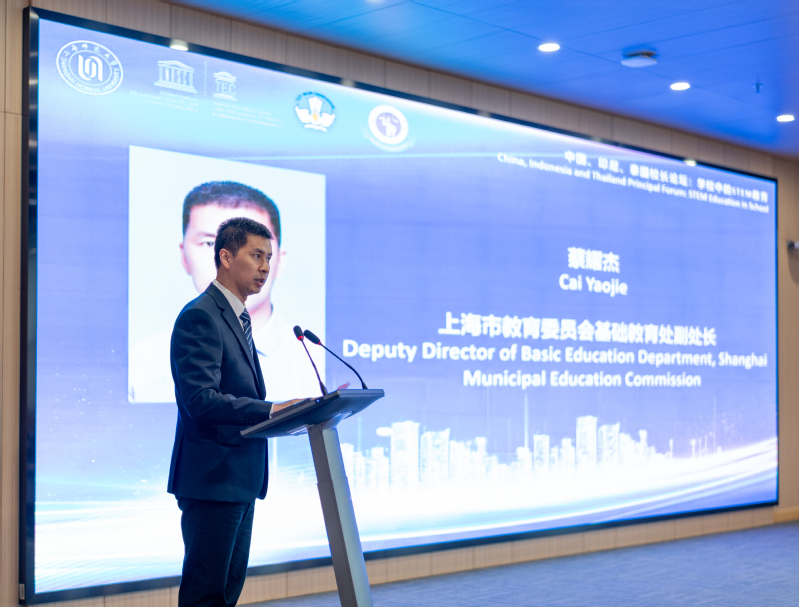
Yaya Sutarya, former Indonesian Education Counselor to China and Deputy Director of the Regional Open Learning Centre of the Southeast Asian Ministers of Education Organization (SEAMEO), shared insights on educational openness and cooperation, and introduced a number of innovative measures taken by Indonesia in STEM education. He stressed the importance of promoting educational equity through open learning and regional cooperation. Mr. Yaya called on countries to strengthen cooperation in STEM education and innovative practices, jointly promote the sustainable development of regional education, and support students’ growth and success in the context of globalization.
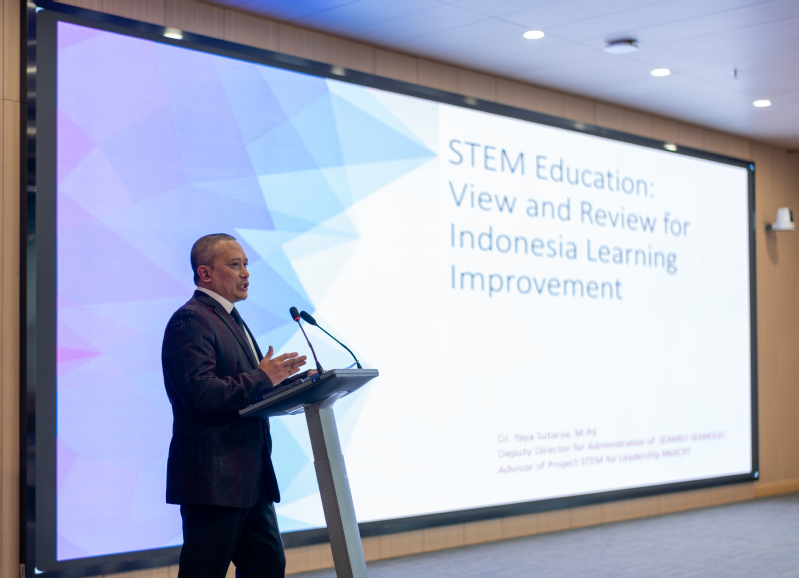
In the school sharing session, Zhu Naimei, Principal of Xunyang Road Primary School in Putuo District, Shanghai, first introduced the school’s practical experience in innovative education. She shared practices to enhance students’ scientific literacy and creativity through interdisciplinary project-based learning and space renovation, including the development of the Dream + Space Renovation Course which allows students to explore and practice in real environments, fostering their ability to solve practical problems. Principal Zhu emphasized that education should provide every child with opportunities for innovation, enabling them to grow through creation and become future talents with independent thinking and practical abilities.
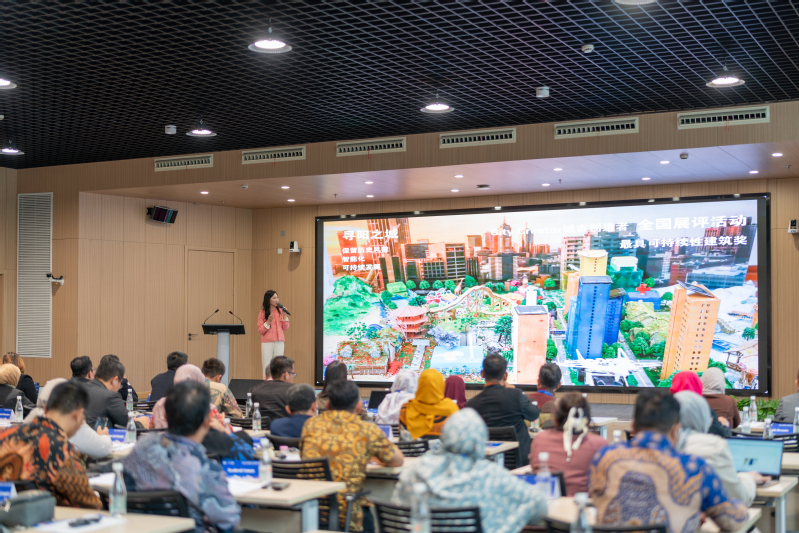
Junaidi, Principal of Langbandanku State Vocational High School in Muaro Jambi Regency, Indonesia, introduced effective methods for teaching STEAM through project-based learning (PBL), encouraging students to cooperate and explore in addressing real-world problems. Principal Junaidi mentioned that students chose bamboo as the theme for their projects, and through designing products, calculating production costs, and developing marketing plans, they improved their hands-on skills and innovative thinking, applied knowledge to practice, and achieved remarkable learning outcomes.
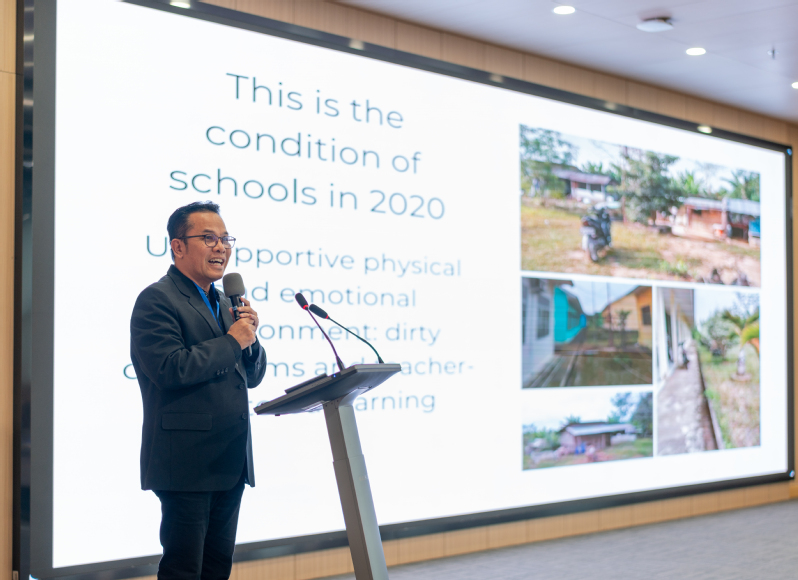
Suthida Chamrat, Associate Professor at the Faculty of Education, Chiang Mai University, Thailand, emphasized the cultivation of students’ scientific, technological, and innovative capabilities through interdisciplinary learning and innovative projects, with a focus on nurturing students with creative problem-solving skills and global citizenship skills. Associate Professor Suthida pointed out that through cooperation with schools, students can develop personal, social, and global skills, thereby becoming active forces driving scientific and innovative changes.
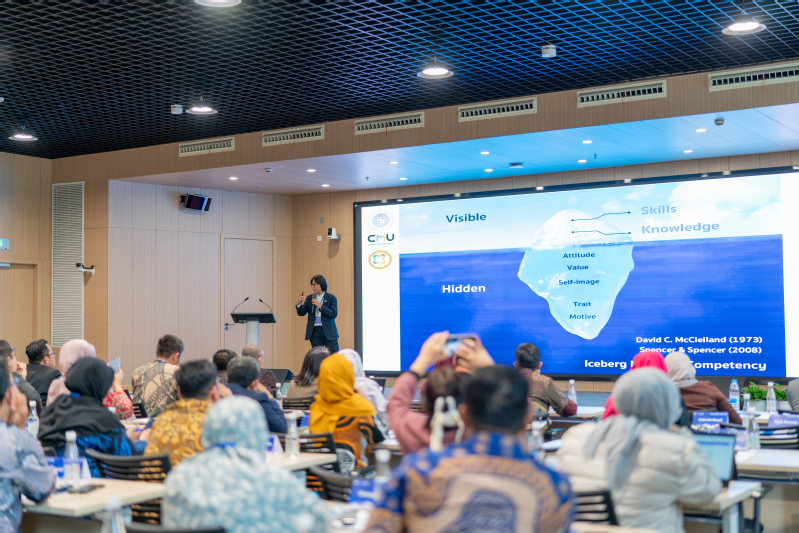
He Yonghong, Vice Principal of Shanghai Minhang Middle School, introduced the school’s 3+1 Science and Innovation Education System, which aims to enhance senior high school students’ innovative literacy through the national curriculum, school-based elective courses, and comprehensive practical activities. Vice Principal He mentioned that the school places emphasis on experimental teaching and situational inquiry, encourages students to conduct small research projects, and promotes the generation of innovative outcomes through school-community collaborative cooperation. In addition, the school has established a science and innovation incubation fund to support students’ innovative projects and cultivate their practical abilities and teamwork spirit.
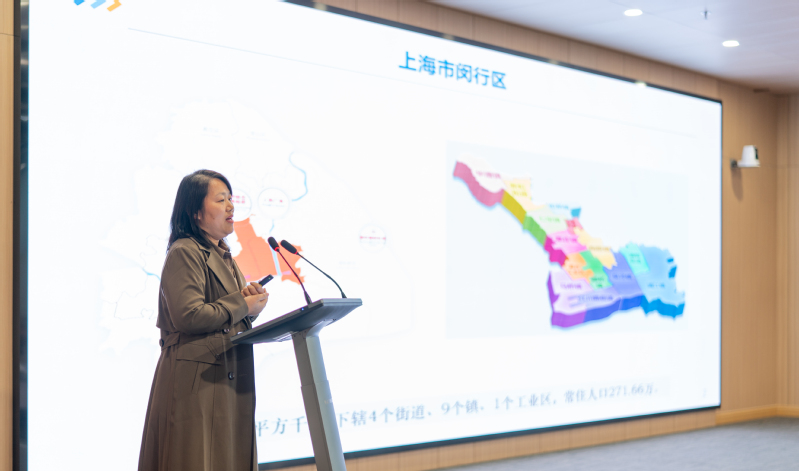
Ida Saidah, Director of the Office of Education, Sports, and Youth Affairs of Cianjur City, Indonesia, shared how the office transformed the traditional supervision model into a partnership role with teachers and principals to support student-centered learning. Director Ida emphasized that through PBL and STEM training, the competencies of teachers and principals in practical teaching have been enhanced, and active communication and cooperation have helped them achieve better results in education and promote the development of students’ innovative capabilities.
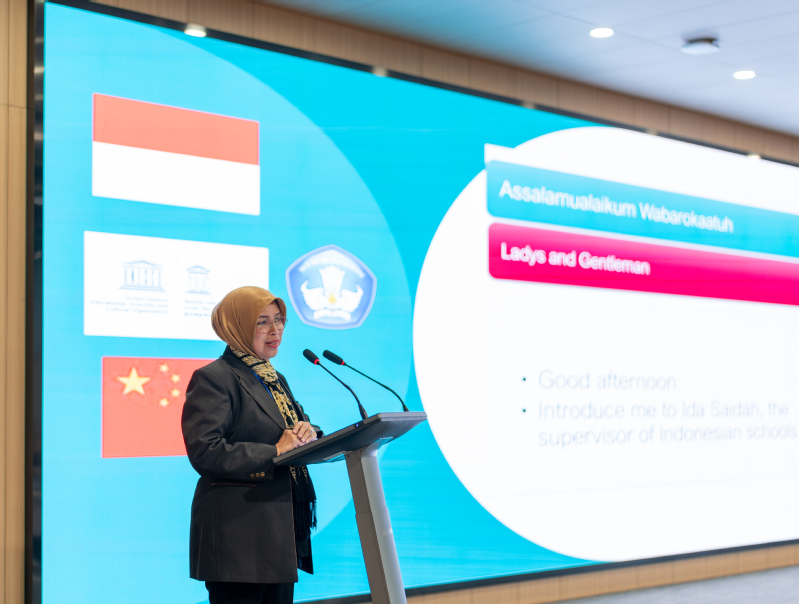
Janejira Arsarkij, Assistant Dean at the Faculty of Education, Chiang Mai University, Thailand, introduced training in AI literacy and digital literacy to help teachers and students effectively use AI technology in teaching and learning. Janejira pointed out that AI, as a tool, can enhance creativity and expand human potential, but educational transformation still relies on teachers’ enthusiasm and commitment.
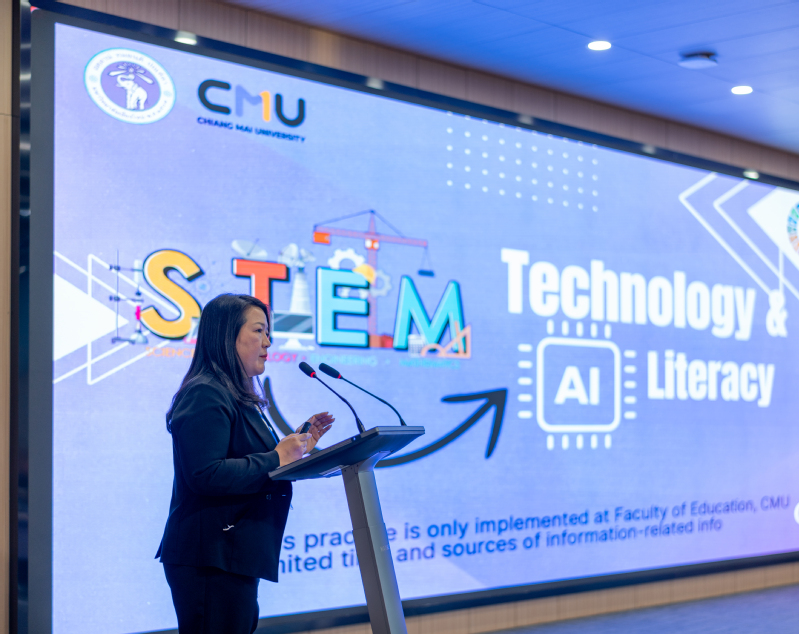
In the commentary session, Associate Professor Li Hui noted that STEM courses focus on localization, respect students’ needs, and are student-centered. She affirmed the role of project-based learning in STEM education, highlighted the cultivation of students’ innovative abilities and other competencies, emphasized the importance of teachers, and called on principals to support teachers and build a sound educational ecosystem. Associate Professor Song Jia stated that STEM practice is a good way to cultivate students’ problem-solving abilities. Although many excellent practical examples have been developed in the implementation of STEM education, the 21st century still brings challenges such as balancing gender gaps, educational reform, and traditional thinking. Finally, Professor Jordan Naidoo made a summary. He pointed out that STEM is a concept and mindset that is evolving; it is essential to attach importance to equity and pay attention to its consequences, strengthen interdisciplinary integration practices and cross-border exchanges, cultivate global citizenship awareness, and value teamwork.
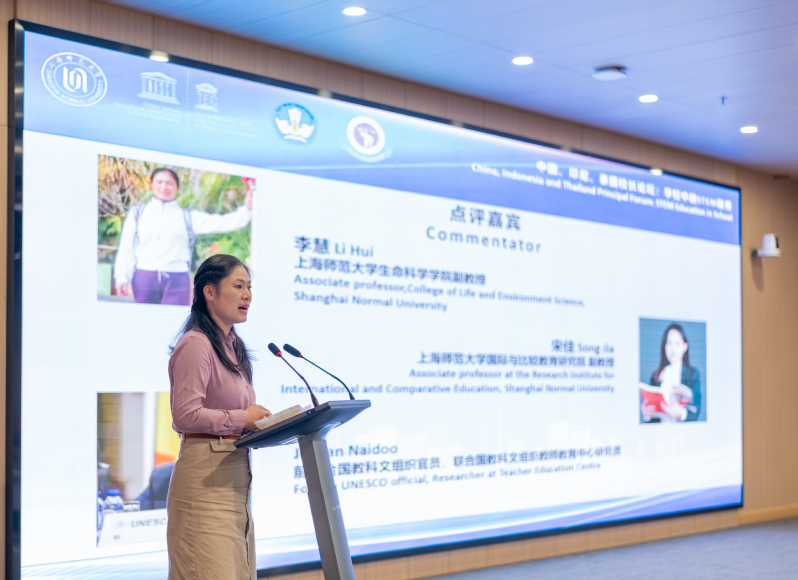
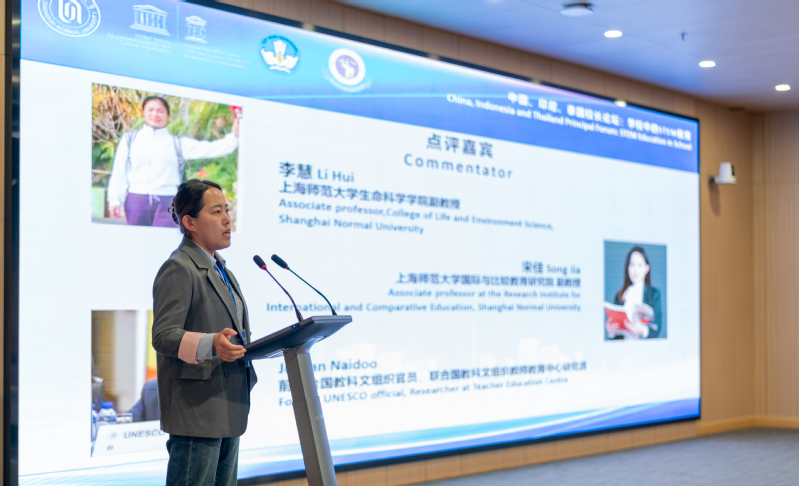
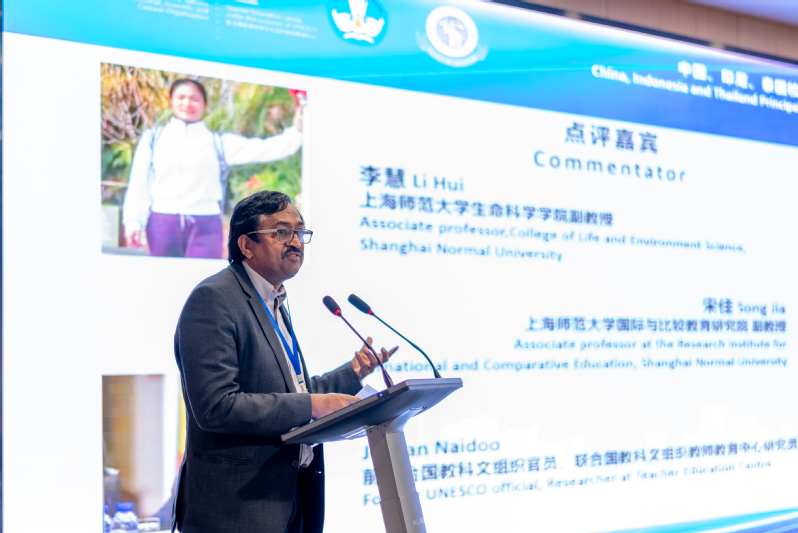
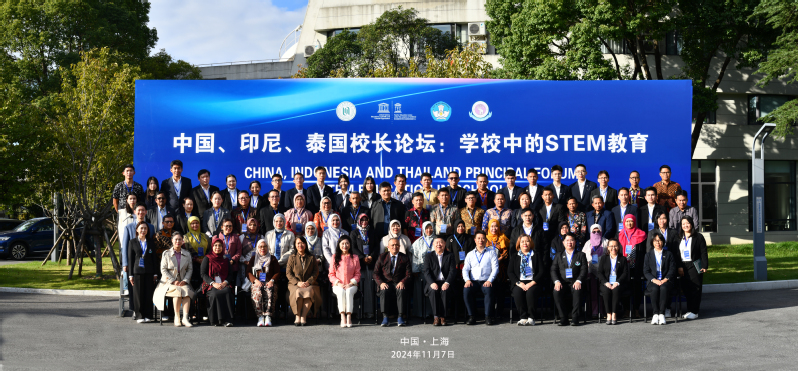
On the morning of the event, coinciding with the visit of the Faculty of Education of Chiang Mai University, Thailand to the Centre, Zhu Xiaohu, Project Director of the Centre, led the visiting group on a tour of the Centre and conducted friendly exchanges in Mingyuan Hall. Professor Zhu Xiaohu introduced the Centre’s basic education research based on large-scale international educational surveys such as PISA and TALIS, while Phakin Buranakruea, Vice Principal of the Demonstration School of Chiang Mai University, Thailand, shared Thailand’s performance in the PISA assessment. During the experience-sharing session, both sides engaged in free Q&A and in-depth discussions on issues such as educational equity and characteristics of Chinese education.
|
|
|
|
|
|
|
|
|
Prior to this, the Indonesian Outstanding Principals Training and Exchange Delegation had conducted a week of learning and exchanges in Shanghai and Huainan. Through attending lectures and reports, visiting off-campus venues and schools, participating in meetings, and engaging in cultural exchanges, the Indonesian principals gained a comprehensive and in-depth understanding of Chinese education, established good relationships with all parties, and laid a solid foundation for future China-Indonesia educational and people-to-people exchanges.
|
|
|



